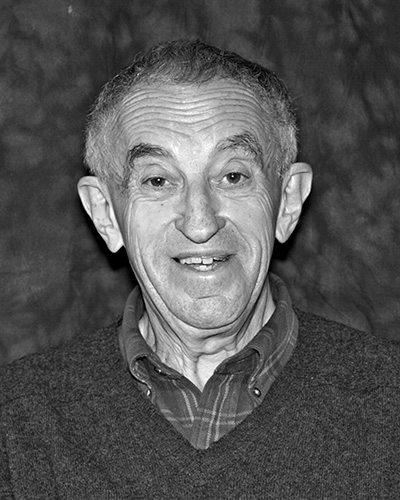In memoriam: Julius Adler
Julius Adler, renowned for his work in chemotaxis, died April 2 at the age of 93. His research advanced the understanding of how bacteria and other organisms sense and respond to chemical stimuli in their environment.

Born in Edelfingen, Germany, on April 30, 1930, Adler developed a youthful fascination for the natural world while chasing butterflies in the hills surrounding his home. This idyllic childhood was disrupted in 1938 when his family fled the Nazi regime and settled in Grand Forks, North Dakota. Although Adler began his education in the United States without knowing a word of English, he graduated as the valedictorian of his high school class.
Adler pursued undergraduate studies at Harvard University in biochemical sciences and graduate studies in biochemistry at the University of Wisconsin–Madison under the mentorship of Henry Lardy. He completed postdoctoral fellowships with Arthur Kornberg at the Washington University School of Medicine and A. Dale Kaiser at the Stanford University School of Medicine before returning to the University of Wisconsin–Madison as an assistant professor in 1960.
Adler started his research lab in the departments of biochemistry and genetics studying chemotaxis in E. coli. At that time, scientists had shown that bacteria were attracted to favorable chemical stimuli and repulsed by unfavorable ones, but they did not completely understand the molecular mechanisms of chemotaxis.
Adler discovered that E. coli sensed chemical stimuli with sensory proteins that he termed “chemoreceptors”. Methyl-accepting chemotaxis protein, or MCP, a chemoreceptor that can acquire methyl groups from methionine and is located on the envelope of E. coli, was central to Adler’s work. He identified the specific methylated residues of MCP and discovered that E. coli contained several MCPs, all of which played a significant role in chemotaxis. He also found that changes in methylation levels of MCP correlated with the bacterial response to chemical stimuli.
Adler’s scientific contributions to understanding chemotaxis earned him numerous awards, including the Pasteur Award Medal in 1977, the Selman A. Waksman Award in Microbiology in 1980, the Otto-Warburg Medal in 1986, and the Abbott–American Society for Microbiology Lifetime Achievement Award in 1995. He was elected to the American Academy of Arts and Sciences in 1976 and the National Academy of Sciences in 1978.
Adler was a member of American Society for Biochemistry and Molecular Biology and received the society’s William C. Rose Award in 1996.
Beyond his scientific achievements, Adler was admired for his mentorship. Melvin L. DePamphilis, his former student and now a lab head at the National Institute of Child Health and Human Development, recalled in Adler Celebration Stories: “When Julius accepted me as a graduate student, I was an immature boy who had never before lived away from home, who wanted desperately to be a great scientist, but who had little, if any, idea how to go about it… When I look back on the past 60 years, I realize that it was Julius who made my career in science possible."
Adler is survived by his wife, Hilde; their two children, David and Jeane; and many grandchildren.
Enjoy reading ASBMB Today?
Become a member to receive the print edition four times a year and the digital edition monthly.
Learn moreGet the latest from ASBMB Today
Enter your email address, and we’ll send you a weekly email with recent articles, interviews and more.
Latest in People
People highlights or most popular articles

The data that did not fit
Brent Stockwell’s perseverance and work on the small molecule erastin led to the identification of ferroptosis, a regulated form of cell death with implications for cancer, neurodegeneration and infection.

Building a career in nutrition across continents
Driven by past women in science, Kazi Sarjana Safain left Bangladesh and pursued a scientific career in the U.S.

Kiessling wins glycobiology award
She was honored by the Society for Glycobiology for her work on protein–glycan interactions.

2026 ASBMB election results
Meet the new Council members and Nominating Committee member.

Simcox wins SACNAS mentorship award
She was recognized for her sustained excellence in mentorship and was honored at SACNAS’ 2025 National Conference.

From humble beginnings to unlocking lysosomal secrets
Monther Abu–Remaileh will receive the ASBMB’s 2026 Walter A. Shaw Young Investigator Award in Lipid Research at the ASBMB Annual Meeting, March 7-10 in Washington, D.C.

